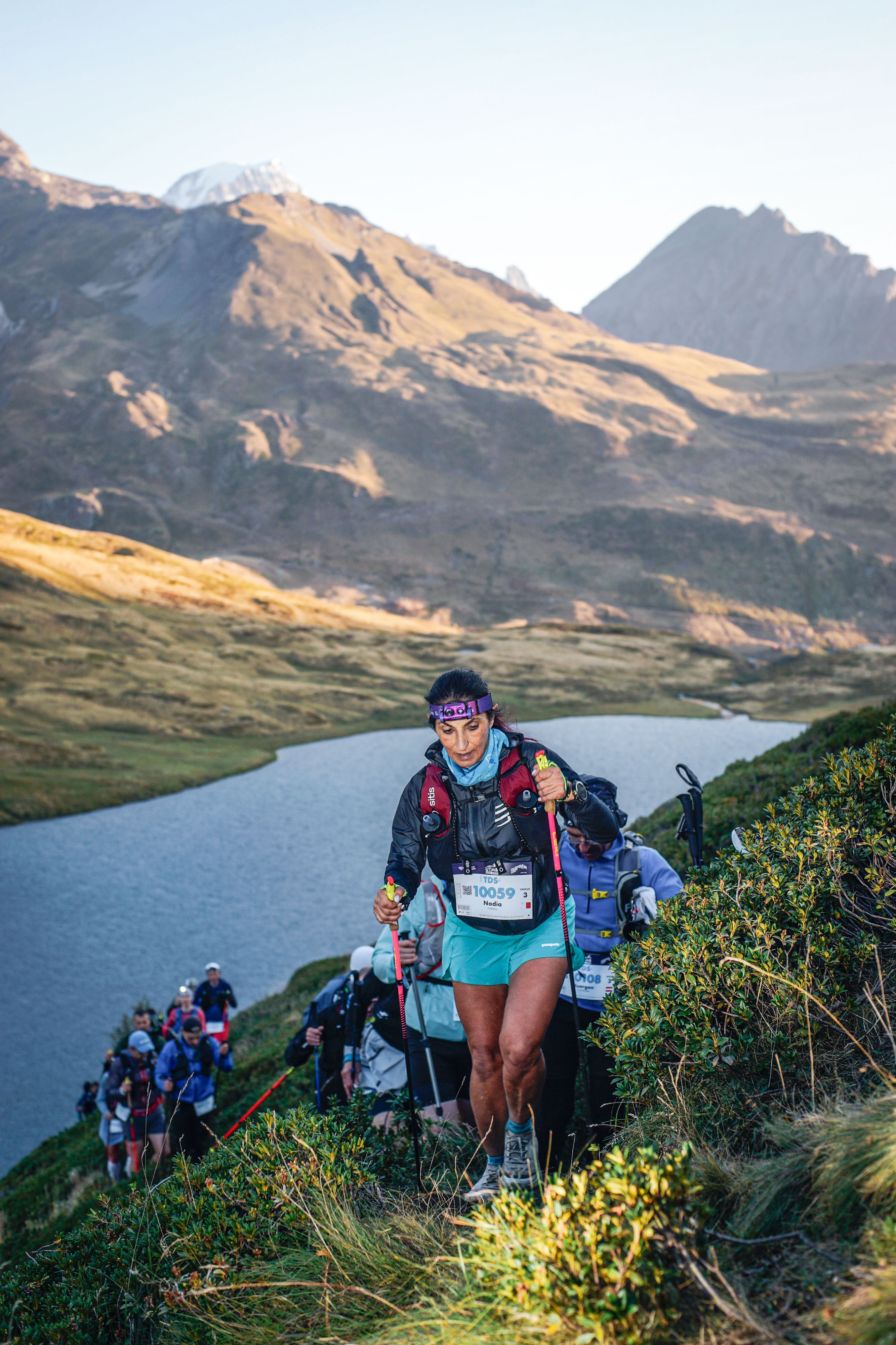
What inspired you to pursue a PhD in Sport Science at Bangor University?
The idea of pursuing a PhD has lingered in my mind since completing my undergraduate degree in physics decades ago. Life’s demands led me down other paths, but when my son graduated, I found the time and motivation to revisit that ambition. Although my academic foundation is in physics, my true passion lies in sport sciences. Bangor University stood out for its strong reputation in this field, its research-led teaching, and its supportive academic environment, making it the ideal place to pursue my doctoral studies.
Can you describe your research focus and why it was important to you?
My research explores the cognitive strategies ultra-distance runners use to endure extreme distances, in conjunction with mental toughness and resilience. As an ultra runner, I was driven to investigate this underexplored area, especially given the sport’s rapid growth and limited robust academic literature. I also examined how cultural narratives shape runners’ identities and decisions, and highlighted the experiences of women, who represent only about 10% of participants in long ultra trail races.
What was the most memorable part of your time at Bangor?
Although I pursued my degree through online study, I periodically visited Bangor University to engage in academic discussions with Dr Stuart Beattie, whose guidance was instrumental throughout my research journey. One of the most memorable experiences during my time at Bangor was participating in the Ultra Trail Snowdonia (a 104km race with over 6500m of elevation gain), where I placed first in my age category. The event took place in Eryri, a region of exceptional natural beauty and ecological significance. Despite the race’s demanding terrain, which required an extraordinary effort, I enjoyed the race, especially the climbs like the Watkin Path. I was in awe of the natural beauty of this area. I also had the best support crew (Dr Beattie).
How has your PhD helped shape your career or personal development?
Undertaking a PhD has profoundly shaped both my personal and professional development. It deepened my critical thinking, research skills, and ability to engage with complex theoretical frameworks, particularly within sport sciences. The process of designing and executing an independent research project, especially one rooted in my own experience as an ultra runner, enhanced my confidence and intellectual curiosity. Personally, the PhD journey reaffirmed my commitment to lifelong learning and provided a sense of fulfilment in pursuing a long-held ambition. Professionally, it has opened new pathways for contributing to academic discourse, mentoring others, and engaging with sport science communities at a deeper level.
Are you still involved in research, sport, or academia? If so, how?
I remain actively engaged in both sport and academia.
I continue to compete in extreme ultra trail running, with a growing focus on longer and more demanding events. I am currently thinking about the Tor des Géants (330 km with 24,000 m of elevation gain) in the Aosta region in Italy, one of the most challenging races in the sport. During my most recent race, called TDS (154 km, 9,300 m elevation gain), I found myself reflecting on my doctoral research, particularly the coping strategies I had explored in my thesis, which proved invaluable in moments of difficulty. I would like to think that I connected academia with sport here.
Academically, I am in the process of developing a publication based on one of the chapters of my thesis. I also intend to expand my research, with a particular focus on the experiences of women in ultra-endurance sports, a topic that remains underrepresented in current literature.
You’ve taken on some incredible ultra marathon challenges – what motivates you to push your physical and mental limits like that?
I can write a whole thesis about that and I still wouldn’t have the answer. Over the years, my reasons for engaging in ultra-trail running have evolved, yet my passion for the sport has remained constant. The allure lies in the challenge, the unknown, meeting people who like me have a passion for the sport, the sense of achievement, and the opportunity for discovery both of self and of landscapes I might never otherwise encounter. These elements continue to fuel my commitment to the sport. Despite its considerable physical and psychological demands, and despite my age, I am well-prepared, having trained extensively in both body and mind over the years. Although I do push my physical and mental limits, I am also aware of my physical limitations and pay attention to maintain my overall well-being.
What advice would you give to current or future Sport Science students?
My advice to current and future Sport Science students is to remain curious, interdisciplinary, and reflective. Sport Science is a dynamic field that draws from physiology, psychology, sociology, and more. So, like I did in my thesis, where I also studied sports narratives which are culturally embedded, seek connections across disciplines. Don’t be afraid to explore unconventional topics, especially those rooted in lived experience. If you're an athlete yourself, use that perspective to inform your research, but also be willing to step back and critically examine it. Engage actively with both theory and practice, participate in conferences, and stay involved in sport. The most meaningful insights often come from the intersection of academic inquiry and real-world experience.
Is there anything else you’d like to share with the Bangor Sport Science community?
To the Sports Science Community: keep pushing boundaries just like I do in my races. Sport Science is not just about performance metrics; it’s about understanding human potential in all its complexity. Whether you're in the lab, on the field, or out on the trails, your work helps expand the conversation and deepen our collective understanding. I look forward to staying connected and contributing to the ongoing dialogue, especially around extreme endurance sport and the evolving role of women in ultra running.
